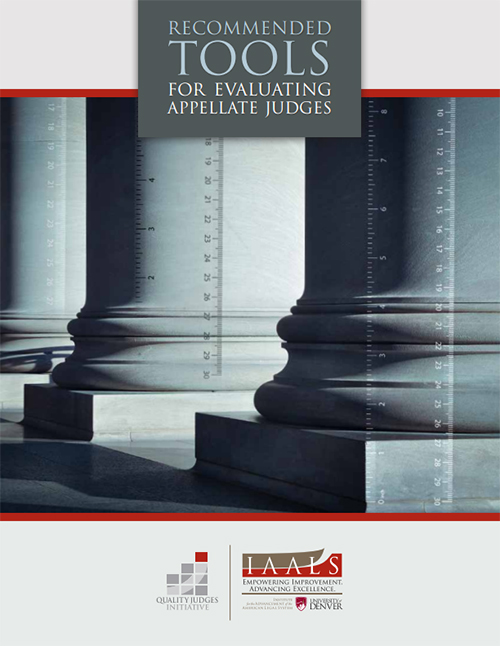< Back to Judicial Performance Evaluation
IAALS has taken a closer look at how best to evaluate appellate judges for two essential reasons.
First, appellate JPE programs have largely been patterned after programs for trial judges, though these judges’ roles and responsibilities differ significantly. Perhaps the most significant difference between appellate and trial judges is their work product; while trial judges hold conferences and make rulings throughout the course of a trial, an appellate judge’s primary output is the written opinion. These differences must be taken into account in the “who, what, and why” of JPE programs for each type of judge.
Second, in today’s political climate, appellate judges are increasingly coming under fire for unpopular rulings in a single case or on a specific hot-button issue, and these attacks often become the focus of anti-retention or reelection campaigns. In order to make responsible decisions at the ballot box, voters need information about the job performance of judges that does not turn on political or outcome considerations. Broad-based, objective appellate JPE programs can provide this information.
Over a two-year period that included a national conference, an expert task force, focus groups with appellate judges and attorneys, and cognitive interviews with potential survey respondents, IAALS developed Recommended Tools for Evaluating Appellate Judges.
Our recommendations and tools include:
- Guidelines and templates for reviewing a judge’s written opinions for legal analysis and reasoning, clarity, and fairness
- Surveys about appellate judges for attorneys who appear before them and use their opinions, trial judges who apply their rulings, and court staff who work closely with them
- A self-evaluation tool that allows judges to assess their own strengths, weaknesses, and overall performance
Read and download the tools.


